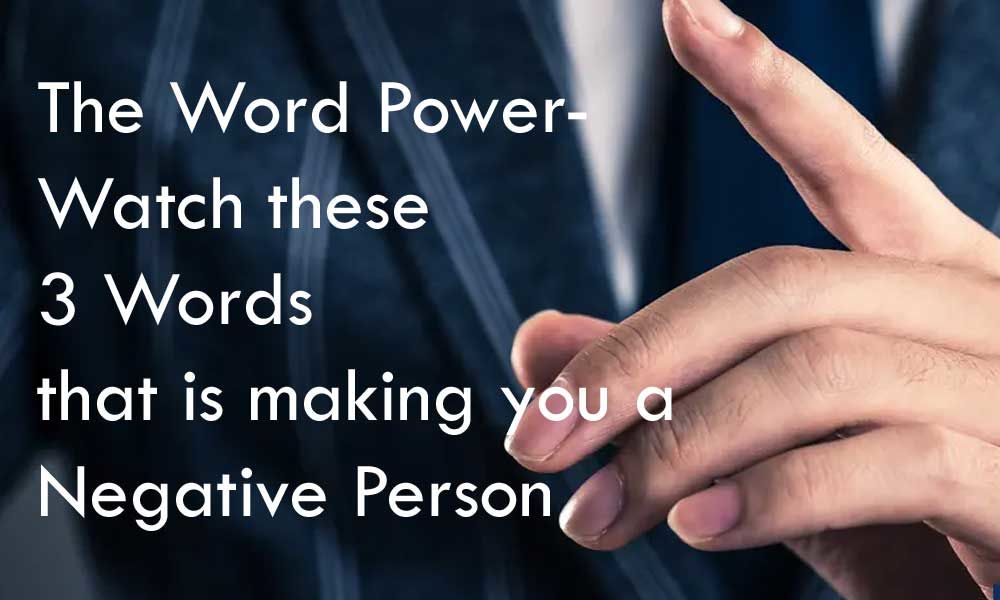The Word Power- Watch these 3 Words that is making you a Negative Person

Cut this phrase out of your vocabulary immediately. Then learn what you should say instead to improve your mood instantly, according to the psychologists.
Cut this phrase out of your vocabulary immediately. Then learn what you should say instead to improve your mood instantly, according to the psychologists.
Let's look into this... This would make you think twice:
The majority of the Indian conversations are characterized by a complaint says a clinical psychologist.
Yes! practically it does make lots of sense. As human brains have what's called a negative bias towards everything they see and they talk. " We tend to notice things that are threatening in our condition," as it goes back to our ancestors time when being able to spot threats was crucial to survival.
And before you say that you really try not to complain- you meditate, you think positive, you always you to find the good- you're likely more guilty than you think. After all, when was the last time you said that had to do something? Maybe had to go grocery shopping. Or you had to work out. Maybe you had to go to your in-laws after work.
It's an easy trap we all fall into from time -to- time but it's one that can not only make our perspectives on life a little more blue but also likely negatively impact brain chemistry.
But Fortunately, a tiny language tweak can help: Instead of saying " I have to," say "I get to." It's something that companies like Life is Good, which sends positive messages through all kinds of apparel and goods, encourage their employees and customers to do.
Here's why it works: " 'I have to' sounds like a burden. 'I get to' is an opportunity,". And our brain responds very powerfully to the way we use language and the way we use language in our thoughts.
After all, while saying you have to do something will likely help you do it. framing the behavior as something you get to fo helps you lean into it with a bit more enthusiasm. " It brings a sense of opportunity and a welcoming of the experience, which has a benefit for us. It's the difference between a threat and a challenge." Very few people are up for a good threat and most of us are up for a good challenge or opportunity...
Emerging psychotherapies, including something called acceptance and commitment therapy, focus on small language tweaks like this to help people beat tough times. So while positive attitudes, which can, in turn, cultivate gratitude and appreciation, encouraging even more positive behaviors and, yep, thoughts, too. Complaints on the other hand? They can leave us feeling more vulnerable and threatened in the world, furthering a cycle of negativity and fear.
To that extent, I have to isn't the only phrase you should drop. says that we tend to categorize ourselves with language in broad, sweeping terms that are often exaggerations. We say: I'm Lonely moments or I'm happy versus I've had some lonely moments or I've had a few sad days recently. All of that can color the way we experience life. While the former can seem overwhelming almost impossible to beat- the latter leaves more room for improvement and also paints a more realistic, tangible picture of the situation at hand.
Gratitude forces you to put a filter on subsequent days to start looking for things for which you're grateful, and that's not typical of human beings so it's kind of creates a systematic program


















